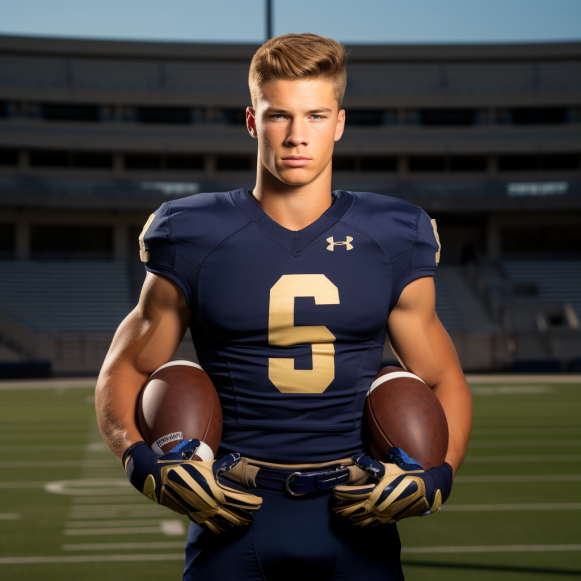The defending champs are in the title race despite a rash of injuries
Instant reaction to Pac-12 field developments…
- The Wasatch Wizard
The Pac-12 will announce the conference championship game’s all-conference team and postseason award winners in early December, a few days after the conference championship game.
Let’s pencil in Utah’s Kyle Whittingham as Coach of the Year right now.
Yes, there is still a half-season to go.
Sure, Washington is unbeaten, and coach Kalen DeBoer has done an excellent job with the Huskies.
And, once again, Oregon State’s Jonathan Smith is doing as much as any coach in the country with his personnel.
Let’s not forget about Arizona’s Jedd Fisch and Colorado’s Deion Sanders, who are both outperforming expectations.
But has any coach ever applied his craft with the complete mastery Whittingham has demonstrated in the first eight weeks?
The Utes are 6-1 overall and tied for second place in the conference (in terms of losses) despite being without their starting quarterback for the entire season.
The same goes for their best all-around tailback.
And their conference-leading tight end.
As well as a slew of other key players.
Yet, they just beat USC 34-32 in the Coliseum on a last-second field goal, despite having a quarterback (Bryson Barnes) who was a walk-on until recently and a tailback (Sione Vaki) who usually plays safety.
It was their third win over USC in the previous 53 weeks.
After the game, Whittingham revealed the conference’s worst-kept secret: quarterback Cam Rising, winner of the last two Pac-12 championship games, will miss the rest of the season due to a lengthy recovery from knee surgery.
Brant Kuithe, the tight end, will as well.
The Utes are also missing talented tailback Micah Bernard and wide receiver Mycah Pittman. There are others as well.
No other team has had as many injuries at the skill positions.
But this is where Whittingham’s system shines. The Utes are constructed in the traditional manner: from the inside out. The offensive and defensive lines have always been the program’s pillars, which is why they can beat Florida, Baylor, and UCLA even without Rising and company.
They have grit, determination, willpower, and moxie.
It’s why they can walk into the Coliseum with a quarterback who was only recently recruited and beat a team led by a Heisman Trophy winner.
Whittingham has coached a slew of good teams in his 12 years in the Pac-12, earning two conference Coach of the Year honors.
He has led the Utes through the Pac-12 transition, many heartbreaking losses, and the deaths of two players.
But this… this is his tour de force.
- The anti-Utah sentiment
Ladies and gentlemen, please welcome the University of Southern California Trojans.
A team that was built from the ground up.
A team with excellent skill-position talent but weak lines of scrimmage and a sloppy defense.
If the Utes are greater than the sum of their parts, the Trojans are smaller.
And, as of Saturday night, the Trojans have two losses, no chance of making the College Football Playoff, and, in our opinion, little chance of qualifying for the Pac-12 championship game.
Not with Oregon, Washington, and UCLA remaining on the schedule.
USC (6-2/4-1) is more likely to finish with four losses than win the conference championship.
Remember that the narrow loss to Utah and the rout at Notre Dame last weekend were preceded by close calls against Arizona and Colorado.
A paper tiger appears to be hidden inside the Trojan Horse.
3 and 4. Bad loss, worse message
Mr. Lincoln Michael Riley, the wayward Trojans’ leader, is, of course, Mr. Lincoln Michael Riley, a 40-year-old with a brilliant offensive mind and, it appears, little regard for defense.
Riley’s coaching abilities, however, are not the subject of this discussion.
Let us instead focus on his management of the USC program and his role as a leader and molder of young men.
Riley refused to make any of his players available to the media for post-game interviews following the crushing loss to Utah.
That would be fine if the Trojans were also unavailable for postgame interviews following victories. However, they are available following victories.
The Hotline never addresses post-practice or post-game media access policies because, frankly, fans don’t care about the difficulties journalists face. (Neither should they.)
And we’re not commenting because of the impact Riley’s hardball approach had on the game’s reporters.
Riley, in our opinion, is doing his players a disservice by establishing two sets of rules: talk to the media after a win but not after a difficult loss.
That’s the wrong message to send. Learning to deal with the media in difficult times is more valuable than learning to deal with the media in good times. The former fosters character development and teaches accountability. The latter illuminates the path to the simple way out.
The players at Arizona State are having a difficult season. They aren’t competing for a bowl berth, haven’t won since the season opener, and just lost a heartbreaker in Seattle to the No. 5 team in the country.
How many times have ASU’s players been isolated from the media following defeats? Zero.
Selective accountability is ineffective. Either hold players to a certain standard in all aspects — including the public-facing aspect of playing football for USC — or don’t bother with standards at all.
Hopefully, this was a one-time decision, and USC’s players will be given the opportunity to interact with the media following subsequent losses this season (because there will be more losses).
Riley is completely wrong if he believes that isolating his players from the media is harming them. The journalists will be fine. (One could argue that he is assisting the press by creating a narrative about his management of the program. Examining the head coach always sells.)
The losers in situations like this are the players. Allow them to face the press. Allow them to respond to the difficult questions. Allow them to learn the importance of accountability. Allow them to practice communicating. Allow them to be vulnerable.
It will serve them well for the rest of the season and for the rest of their lives.
- Montlake Escape
The Pac-12’s light Week 8 schedule produced two blowouts (UCLA over Stanford and Oregon over Washington State) and two close games.
We already discussed Utah’s narrow victory over USC. The other exciting game of the day took place in Seattle, where Arizona State nearly pulled off the upset of the year in college football.
The Sun Devils were 26.5-point underdogs against the mighty Huskies, but they led 7-6 early in the fourth quarter and were on their way to a touchdown when UW cornerback Mishael Powell’s 89-yard Pick Six changed the game and saved the season.
The Huskies prevailed 15-7, extending their winning streak to 14 games.
Their most recent defeat came on October 8, 2022, to Arizona State.
After the epic victory over Oregon, we expected a hangover on Montlake, but this was even closer than expected thanks to four turnovers by UW.
Quarterback Michael Penix threw two interceptions and did not appear to be a Heisman Trophy contender. (Neither did USC’s Caleb Williams, for that matter.)
Instead of focusing on Washington’s performance, consider Arizona State’s, which is playing for pride and has shown plenty of it under coach Kenny Dillingham.
The Sun Devils gave USC more than it expected, played Cal to a three-point game, pushed Colorado to the limit, and nearly stunned the undefeated Huskies despite being handed a postseason ban days before the season opener.
ASU has the conference’s worst record, but the effort level has been outstanding on a weekly basis.




